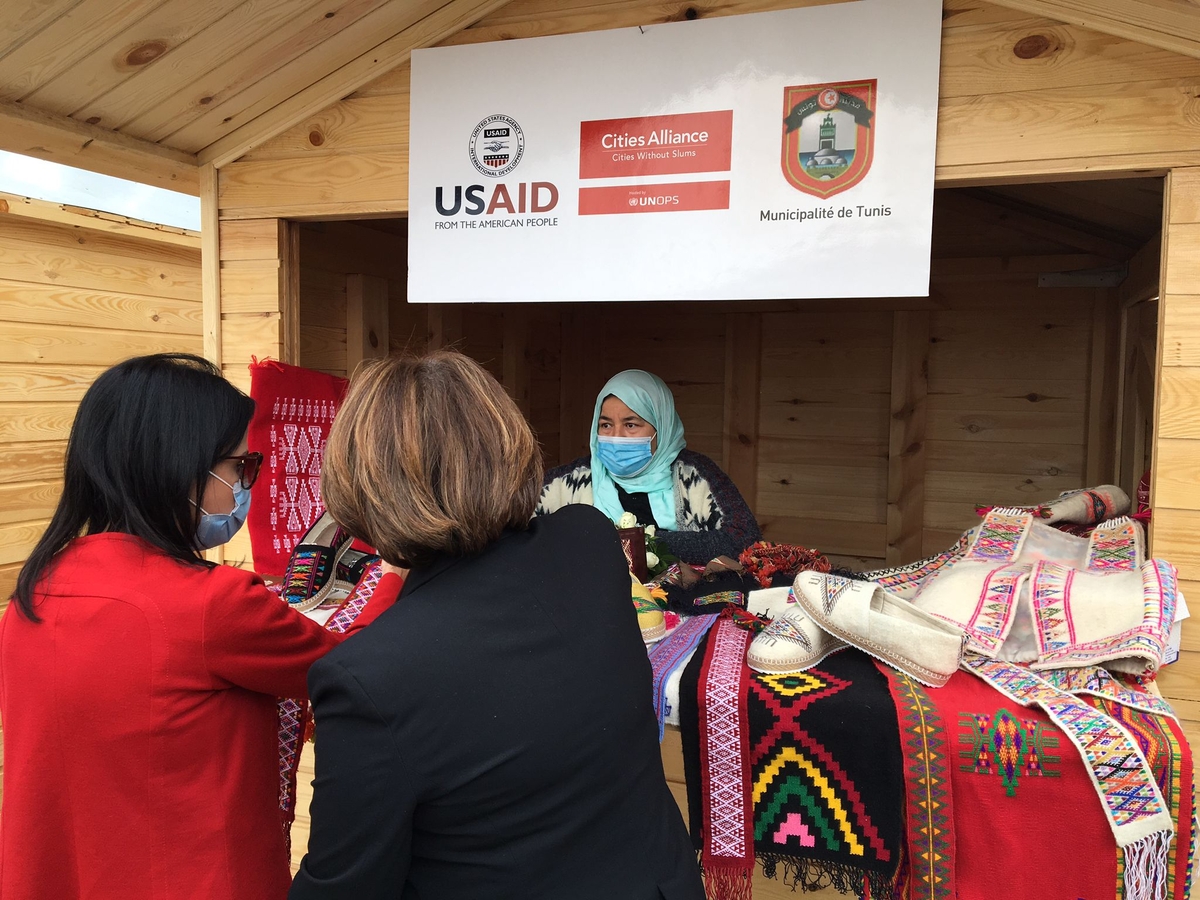On 9 March, the partners of the Femmedina project, USAID, the municipality of Tunis, and Cities Alliance, inaugurated two refurbished public spaces in the historic Medina of Tunis. The sites, located in Sidi Bechir and Bab Souika were transformed into inclusive venues to promote greater economic and social opportunities for women. The refurbished sites were co-designed with women and communities living and working in the Medina.
Femmedina is a symbol of our commitment to supporting women’s economic and social empowerment.
Natasha Franceschi, U.S. Embassy Chargée d’Affaires
"We are proud to partner with the Municipality of Tunis and local women to witness the transformation of these public spaces into inclusive venues that create economic opportunities for women", said Ms Franceschi.
Implemented by Cities Alliance, the Femmedina project supports the creation of public spaces such as training centres, art exhibitions spaces, outdoor libraries, playgrounds, and public gardens in the Medina of Tunis to generate new economic opportunities for women. The rehabilitation of the six spaces involved a participatory process to understand the needs and challenges of women and girls to access and participate equitably in the urban space.
This project is an important first step that we could achieve thanks to the presence of several foreign partners, who believed in us and our abilities.
Souad Abderrahim, Mayor of Tunis
"They also believed that Tunisian women living in normal conditions and with a normal level of education have the right to dream and have the right to realize their hopes. We must therefore provide the necessary conditions to enable them to realize their dreams and aspirations", noted the Mayor.
To date, the U.S. government and the Municipality of Tunis have worked together to revitalize six municipal spaces in four districts of Tunis. In Bab Bhar, the project includes the supply of materials and equipment to the associative training centre of the municipal district and the development of the "Parc de Passage" with an outdoor library, as well as the provision of public benches, and playgrounds.
In Bab Souika, a training space has been dedicated to women's capacity-building sessions. Similarly, the project renovated an open space and established exhibition kiosks behind the municipal office of Bab Souika dedicated to women artisans and provided children’s playground equipment in the area.
In Sidi Béchir, a municipal space was equipped with sewing, nail treatment, craft, and computer equipment to promote the learning and training of women. In the Medina, one space in El Hafsia, previously used as a car park, was redeveloped into public gardens equipped with public benches, lighting, and greenery to allow women to use them as a place for work, leisure, and social activities.

The rehabilitation of the areas inside the Medina of Tunis has been an opportunity to listen to women that live there, and co-create public spaces that respond to their needs.
Giulia Maci, Cities for Women Programme lead Cities Alliance
Femmedina is an 18-month project which was developed as part of a participatory process to gather the voices, experiences, and expectations of women in the Medina. The process included workshops, spatial mapping, and a survey with over 120 respondents, with an analysis of the data collected on the uses and activities of public spaces. It also included the rehabilitation of urban spaces co-designed with women and communities living and working in the Medina.





